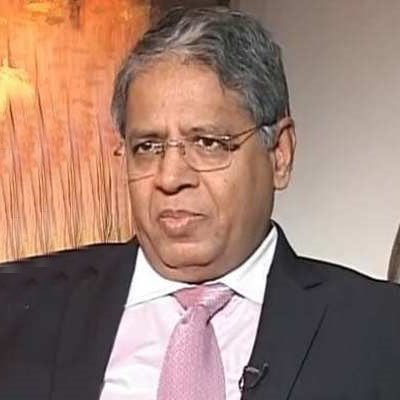

Akhil Gupta
AKHIL GUPTA is a Senior Advisor to Blackstone and Chairman of Blackstone India, based in Mumbai. Mr. Gupta started the operations of The Blackstone Group in India in 2005 as its Senior Managing Director, managing Blackstone’s Private Equity operations, and providing support for Real Estate and Advisory services.
Before joining Blackstone, Mr. Gupta served as CEO- Corporate Development for Reliance Industries Limited, focusing on developing Reliance’s oil & gas, refining, and telecom businesses. Mr. Gupta began his career at Hindustan Lever. From 1981 to 1992 he worked in the U.S, first in consulting with Strategic Planning Associates and ICF in Washington D.C., then as Chief Financial Officer of two integrated retailers and manufacturers of furniture. Mr. Gupta received the Distinguished Alumni Award from IIT in 2004. Mr. Gupta serves on the board of Allcargo Logistics Ltd, NCC Ltd, Hindustan Power Projects Pvt Ltd., Jagran Prakashan Ltd, and Trans Maldivian Airways.
Our Exclusive Interview:
What is your definition of a good leader?
Five Ps define a good leader – Purpose, Passion, People, Positivity and Paranoia.
A good leader has a higher purpose beyond monetary and ego goals. A good leader is very passionate about pursuing his or her purpose. By definition leadership is not about oneself but it is about leading other people. Hence, people orientation becomes another important ingredient of leadership. You have to like people to be able to lead them. You should be a good judge of people, and must have the right people in your team. You must not be afraid to make tough people decisions.
A good leader is always positive even when facing tough challenges and yet constantly paranoid too about organization’s reputation and missing any shifts in markets, technology or regulation. These Yin / Yang kind of qualities are what provide flexibility to a leader to act appropriately to any situation.
How do you think organizations should evaluate/measure “quality of leadership”?
The essential quality of a leader is to nurture other leaders in the organization. Has the leader imparted a sense of ownership across the breadth of the organization? Has the leader created a culture of teamwork and trust? Is the leader perceived to be fair? Leader’s job is not to know himself or herself but create a culture, systems and processes so as that the organization is able to find opportunities and answers to the challenges faced by the organization.
How can one improve one’s leadership skills?
The first ingredient is Humility – wanting to listen and learn. The second is to develop self-awareness i.e. knowing your strengths & weaknesses so as to be able to play to your strengths in a team situation & ask for help where you are relatively weak. Third is to take up a challenging assignment which stretches you, which takes out of your comfort zone.
Don’t be afraid to ask for help, be vulnerable or even to fail. Put your strength to work in the service of the higher purpose that motivates you.
A leader also needs the social skills. Be aware how you are being perceived, what impact you have on other people. Always approach people with a sense of empathy. Learn to empower people.
What are the three most important challenges in front of leaders in today’s times?
The biggest challenge is managing Change. Constant change is the new normal. Future will arrive faster than you think. Technology moves 3 to 4 times faster than organizations ability to change. Hence continuous innovation and renewal remains the foremost task. Also doing the right thing is the content of short term focus of many stakeholders require courageous leadership.
What in your views are most effective ways/ techniques for grooming future leaders?
Identify potential leaders, challenge them by giving them early responsibility and act as mentors to them. Invest in their training and development through residential courses and rich exposure. Rotate them across different jobs that require different skillset to succeed. Above all they must develop their communication skills.
When should a leader call it quits?
When someone else is ready to do the job of the leader, the leader should make way and transition himself / herself to higher value added activities – mentoring can be immensely value adding as well as very satisfying personally. This can be very effectively done as a non-executive Chairperson. The leaders should fully transition at some point of time to devote their time, leadership skills & other resources to the social sector.
Which leader in the Corporate world do you admire and why?
There is not one leader that comes to my mind, but several leaders whose specific traits I admire.
Dhirubhai for his higher purpose (he wanted to show to the world that Indians are capable of being the best in the world), Yash Chopra for his humility despite being the most powerful person in the film industry for many years,
Ratan Tata for his grace, JRD Tata for creating the DNA for the Tata group to make it synonymous with Trust.
